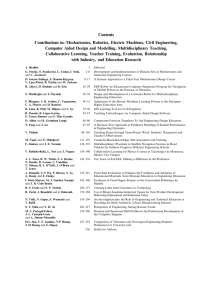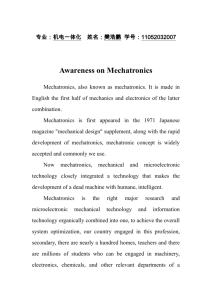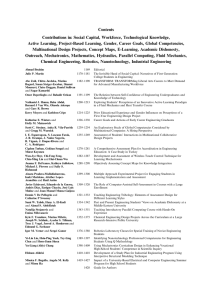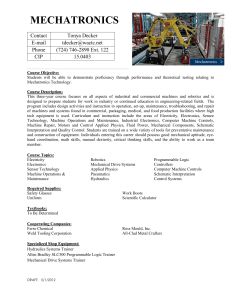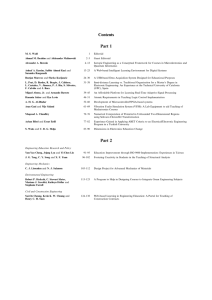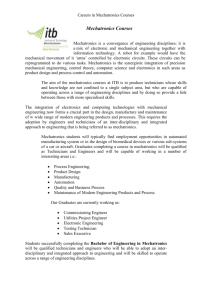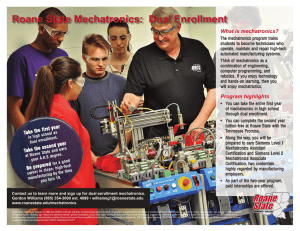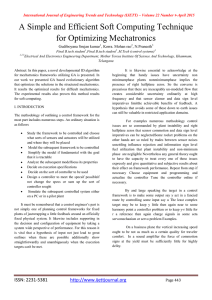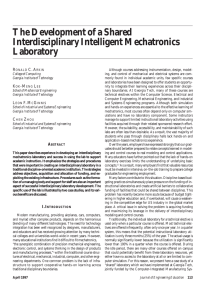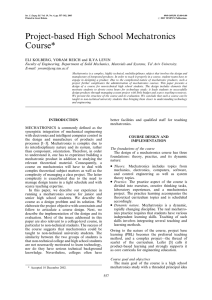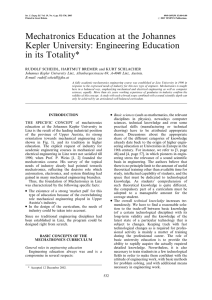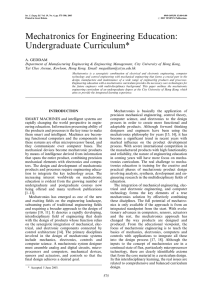Int. J. Engng Ed. Vol. 19, No. 4, p. 514,... 0949-149X/91 $3.00+0.00 Printed in Great Britain. # 2003 TEMPUS Publications.
advertisement
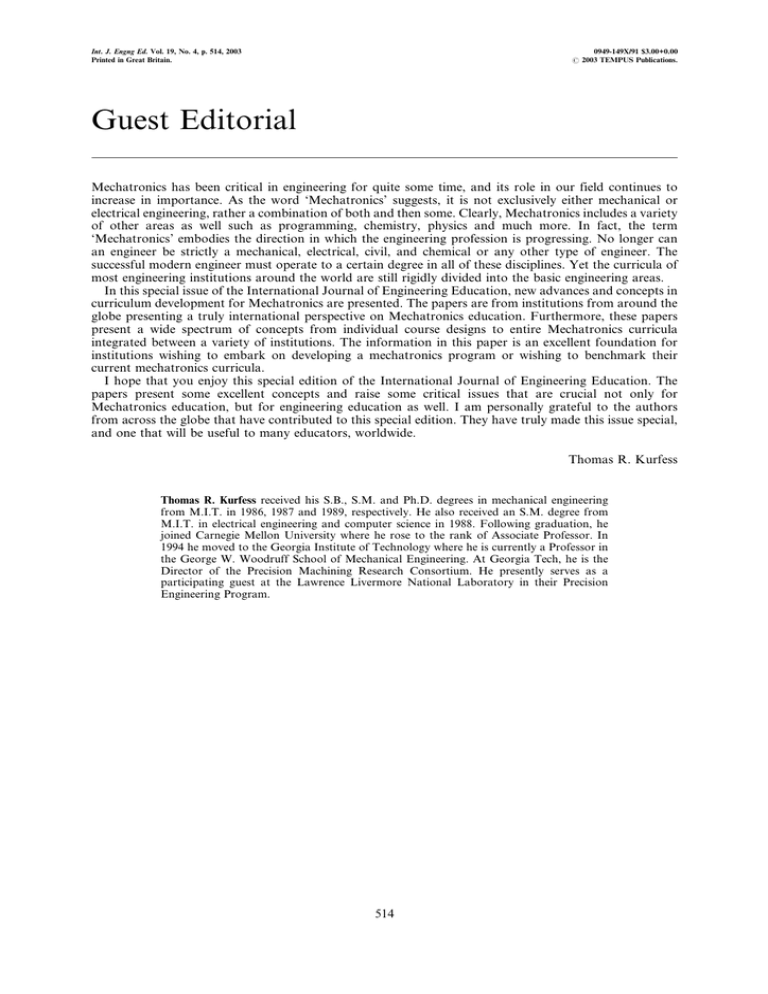
Int. J. Engng Ed. Vol. 19, No. 4, p. 514, 2003 Printed in Great Britain. 0949-149X/91 $3.00+0.00 # 2003 TEMPUS Publications. Guest Editorial Mechatronics has been critical in engineering for quite some time, and its role in our field continues to increase in importance. As the word `Mechatronics' suggests, it is not exclusively either mechanical or electrical engineering, rather a combination of both and then some. Clearly, Mechatronics includes a variety of other areas as well such as programming, chemistry, physics and much more. In fact, the term `Mechatronics' embodies the direction in which the engineering profession is progressing. No longer can an engineer be strictly a mechanical, electrical, civil, and chemical or any other type of engineer. The successful modern engineer must operate to a certain degree in all of these disciplines. Yet the curricula of most engineering institutions around the world are still rigidly divided into the basic engineering areas. In this special issue of the International Journal of Engineering Education, new advances and concepts in curriculum development for Mechatronics are presented. The papers are from institutions from around the globe presenting a truly international perspective on Mechatronics education. Furthermore, these papers present a wide spectrum of concepts from individual course designs to entire Mechatronics curricula integrated between a variety of institutions. The information in this paper is an excellent foundation for institutions wishing to embark on developing a mechatronics program or wishing to benchmark their current mechatronics curricula. I hope that you enjoy this special edition of the International Journal of Engineering Education. The papers present some excellent concepts and raise some critical issues that are crucial not only for Mechatronics education, but for engineering education as well. I am personally grateful to the authors from across the globe that have contributed to this special edition. They have truly made this issue special, and one that will be useful to many educators, worldwide. Thomas R. Kurfess Thomas R. Kurfess received his S.B., S.M. and Ph.D. degrees in mechanical engineering from M.I.T. in 1986, 1987 and 1989, respectively. He also received an S.M. degree from M.I.T. in electrical engineering and computer science in 1988. Following graduation, he joined Carnegie Mellon University where he rose to the rank of Associate Professor. In 1994 he moved to the Georgia Institute of Technology where he is currently a Professor in the George W. Woodruff School of Mechanical Engineering. At Georgia Tech, he is the Director of the Precision Machining Research Consortium. He presently serves as a participating guest at the Lawrence Livermore National Laboratory in their Precision Engineering Program. 514
